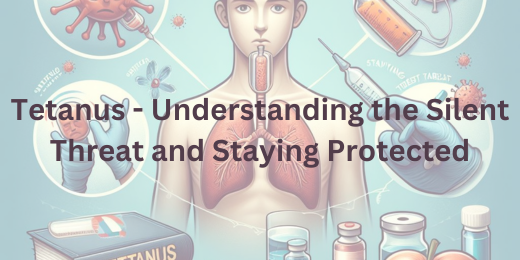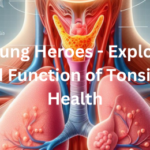Tetanus symptoms
Tetanus, commonly referred to as lockjaw, is a bacterial infection caused by the bacterium Clostridium tetani, leading to muscle stiffness. It is characterized by severe muscle stiffness and spasms, primarily affecting the jaw and neck muscles. Understanding the symptoms of tetanus is crucial, as it helps in early detection and timely medical intervention.
Muscle rigidity, difficulty swallowing, and fever are common tetanus symptoms. Prevention is key to avoiding this silent threat, and staying informed about tetanus vaccination is vital for protection. Ensuring that individuals are aware of the risks and understand the importance of maintaining up-to-date tetanus vaccinations can significantly reduce the likelihood of contracting this potentially life-threatening infection.
Causes and Transmission
Tetanus is caused by the bacterium Clostridium tetani, which usually enters the body through wounds or cuts contaminated with soil, dust, or animal feces. The bacterium thrives in environments with low oxygen levels, such as deep puncture wounds or lacerations, making it essential to be vigilant about wound care and hygiene.
Common sources of infection include stepping on a rusty nail, animal bites, or burns. Understanding how Tetanus bacteria enter the body helps in taking preventive measures to reduce the risk of infection. Practicing proper wound care, cleaning and disinfecting wounds promptly, and seeking medical attention for any deep or dirty injuries are crucial steps in Tetanus prevention.
Moreover, ensuring that one’s Tetanus vaccination is up-to-date provides an additional layer of protection against this potentially serious and preventable disease. Similarly, the causes of Parkinson’s disease involve a mix of genetics, environment, and the loss of dopamine-producing neurons in the brain.
Symptoms and Complications
Recognizing early symptoms of Tetanus is vital for timely intervention and effective management. The initial signs often include muscle stiffness and spasms, starting in the jaw and neck area and then spreading to other parts of the body. This may lead to difficulty swallowing and breathing, making it a potentially life-threatening condition.
As Tetanus progresses, the muscle spasms can become severe, causing excruciating pain and even fractures. Additionally, the infection can lead to complications like pneumonia, aspiration, and cardiac problems, further escalating the severity of the disease. Hence, understanding the symptoms and seeking medical attention promptly is crucial to prevent complications and ensure better outcomes.
Alongside Tetanus prevention measures, such as wound care and vaccination, early recognition plays a pivotal role in safeguarding against this silent threat. Similarly, the causes of fever are diverse and can include viral or bacterial infections, inflammatory conditions, and reactions to certain medications.
Prevention and Vaccination
Prevention of Tetanus through vaccinations is of utmost importance in safeguarding against this potentially serious infection. Tetanus vaccinations, commonly administered as part of the DTaP (diphtheria, tetanus, and pertussis) or Tdap (tetanus, diphtheria, and pertussis) vaccines, stimulate the body’s immune system to produce antibodies that protect against the bacterium Clostridium tetani.
Maintaining up-to-date vaccinations is crucial, especially for individuals at higher risk due to occupations involving potential exposure to soil or dirty environments. The recommended vaccination schedule typically includes a primary series of vaccinations during childhood, followed by booster doses every 10 years in adulthood.
Adhering to these vaccination schedules ensures that individuals maintain adequate protection and reduces the risk of Tetanus infection, making it an essential aspect of preventive healthcare. Likewise, the causes of asthma are multifaceted, including genetics, environmental factors, and respiratory irritants, leading to chronic inflammation and airway constriction.
First Aid and Treatment
In cases of potential Tetanus exposure, knowing the immediate actions for wound care is crucial to minimize the risk of infection. Cleaning the wound thoroughly with soap and water is the first step, removing any dirt or debris that may harbor the Tetanus bacterium. Applying an antiseptic solution and covering the wound with a clean bandage can further prevent bacterial entry.
However, if Tetanus symptoms begin to appear, immediate medical treatment becomes essential. Tetanus cases require hospitalization and specialized medical care, including administering Tetanus immune globulin to neutralize the toxin and Tetanus toxoid vaccination to boost immunity. Muscle relaxants and pain relievers may be used to manage symptoms.
Prompt and appropriate actions for both wound care and medical treatment are vital in dealing effectively with Tetanus and its potential complications.
Staying Protected
Staying protected from Tetanus requires a two-pronged approach: promoting awareness and education, and implementing preventive measures. Creating awareness about Tetanus symptoms and the importance of vaccinations is crucial to ensure people understand the risks and take appropriate actions.
Educational campaigns and resources can help disseminate information about Tetanus prevention and the significance of keeping vaccinations up-to-date. Additionally, implementing preventive measures, such as practicing proper wound care and maintaining good hygiene, can significantly reduce the risk of Tetanus infection.
Ensuring that wounds are cleaned and treated promptly, especially in situations involving potential exposure to Tetanus-causing bacteria, is essential. By combining awareness efforts with preventive actions, individuals can better protect themselves and their communities from this silent threat.



